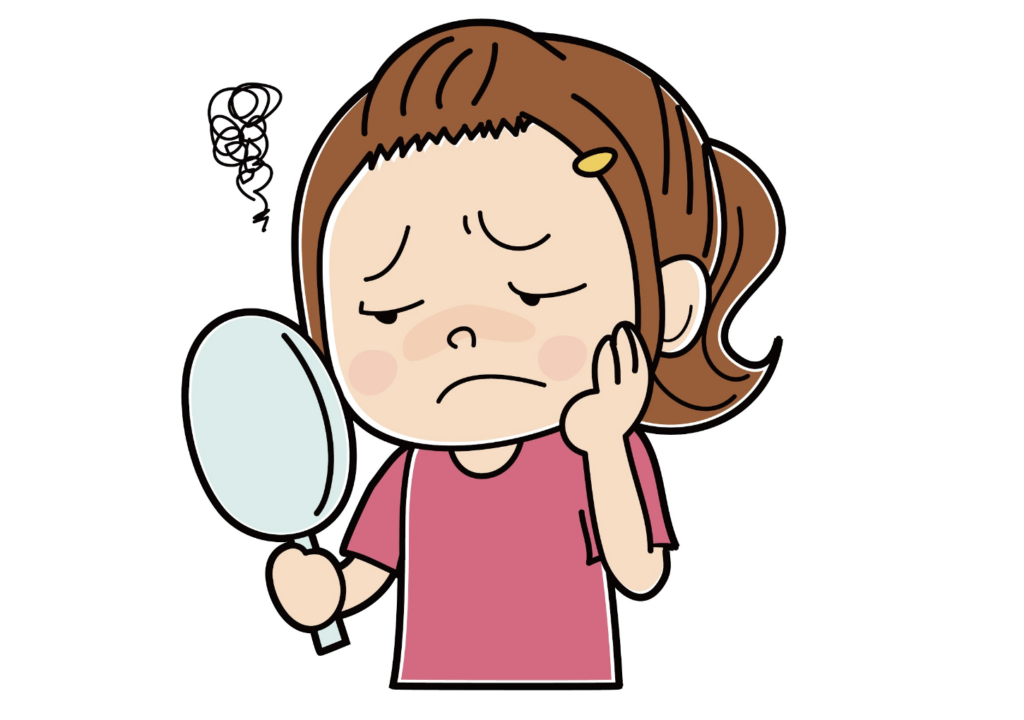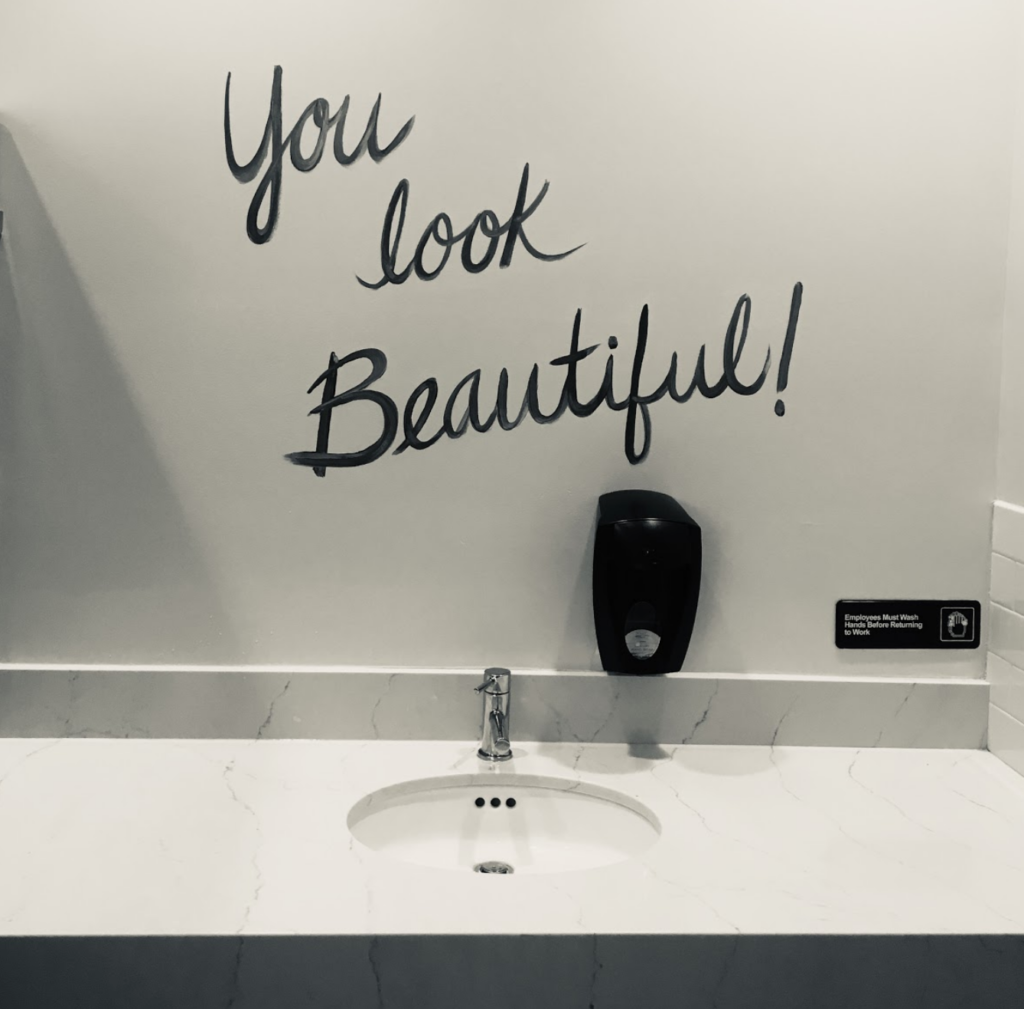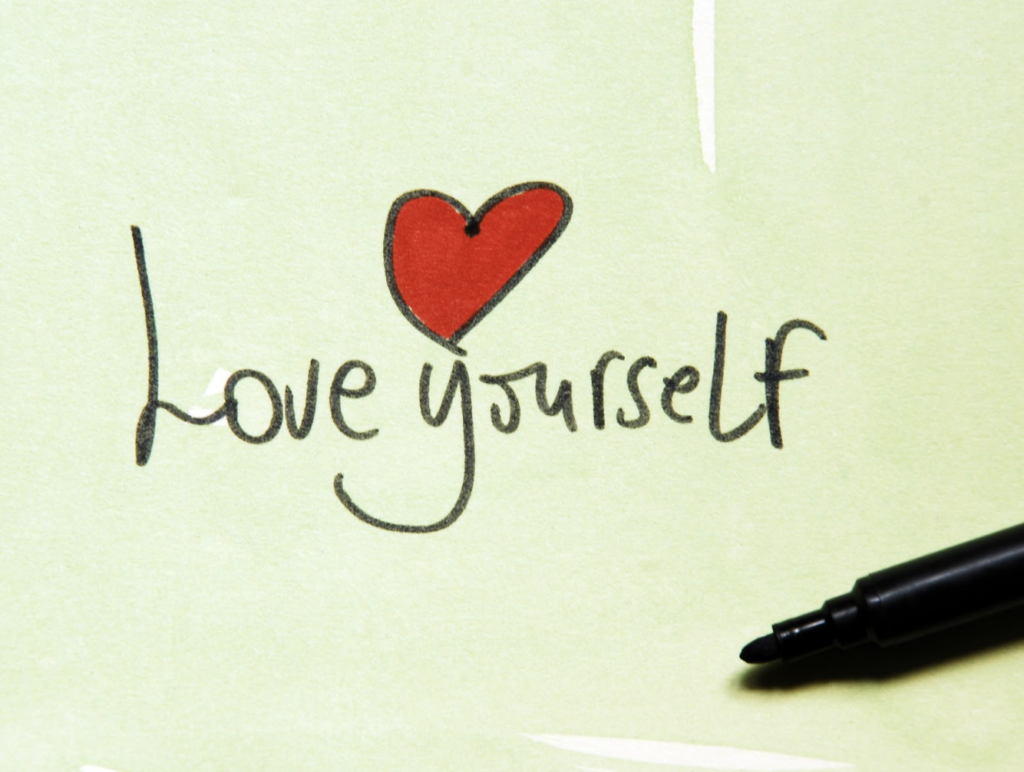Sometimes, it feels impossible to see yourself in a positive light, get out of your head, and combat negative thoughts.
You are not alone.
The way we perceive ourselves can affect our entire lives — that’s a lot of pressure. But there is good news: With the powerful tools of gratitude, healing, and acceptance, you can cultivate a positive self-image.
Definition of Self Image
Self-image is how we perceive our appearance, personality, and abilities. Yes, it is what you physically see when you peer at your own reflection in a mirror, but it’s so much more than physical appearance. It’s a mental picture and the conception you have of yourself.
The way you see your body in a new outfit, your performance at your workplace, and your worth in relationships are all examples of self-image.
You may have also heard of the term self-concept. Self-concept and self-image are not interchangeable, but they are associated. Social psychologist Roy Baumeister defines self-concept as: “The individual’s belief about himself or herself, including the person’s attributes and who and what the self is.”
Self-concept is a broader idea, as it encompasses:
- Self image (how you see yourself)
- Self-esteem (the extent to which you value yourself)
- The ideal self (what you’d like to be)
Self-image is often learned. It results from how an individual sees oneself, but can also be formed from how others see the individual. People gather and internalize ideas about themselves based upon personal experiences and the judgements of others.
A distorted self image can skew your outlook on life, happiness, and sense of fulfillment. If you were taught to believe that you were too emotional, it is quite possible that you will feel ashamed every time you feel something strongly and try to suppress it. If someone once told you that your smile was crooked, you may grow to be sensitive about the way that you smile and even adapt physically.
It may feel like the very definition of reality, but self-image may not actually be an accurate representation of your personhood. It’s possible that all, some, or even none of the ideas that self-image presents are true. Your self-image is likely based on perception rather than reality.
Self image takes time to form, and it changes often over a lifetime through experience and societal influence. Different life experiences and interactions with different people may shift our beliefs about ourselves and in turn, change the status of our self image.
What is an unhealthy, distorted self image?
Self image can be positive and negative. Many Americans today experience unhealthy, distorted self image. Negative self image often means that a person may be doubtful of his or her capabilities and ideas, have a low sense of self-worth, low self-esteem, or poor body image.
Poor self image may be rooted in treatment received from childhood via authority figures, parents, or friends. Body-image issues and eating disorders can arise at an adolescent age, and those who have a “type A” achiever personality are particularly prone to disappointment, striving to be perfect and feeling like they are “never enough”.
Unhealthy distorted self-image shows up in everyday life through negative self talk. A person with an unhealthy self-image will likely focus on their flaws, limitations, and how they are different from others. They practice negative self talk by questioning their actions through self-criticism (“What was I thinking?”), are self-destructive (“I’m so stupid”), and consistently have negative thoughts about themselves (“I’m not good at this.”).
As a result of this kind of communication with oneself, mental health suffers, thoughts can be exaggerated, and lives may be constantly compared to someone else’s. Other symptoms of this are self-doubt, insecurity, and discouragement, which can lead to depression or relationship challenges.
Positive Self Image
Having a positive self-image means having a generally positive, good, and healthy view of yourself and your capabilities. Those who have a healthy self-image will see themselves as attractive, capable, and worthy of love. Most will also have a healthy outlook on life.
They may radiate self-confidence and likely have a positive body image as a result of a healthy self-image.
Those exhibiting positive self-image may find themselves to be closer to their ideal self, and either think that others perceive them in a positive light, or no longer care about unbeneficial criticism. They are not influenced by others, nor are they as heavily affected by societal norms.
People with a positive sense of self will likely have a greater sense of what they can control in their lives. Instead of dwelling on their flaws, they recognize their existence today and work towards improvement and growth — rather than letting negative thoughts consume them.
How to Improve Self Image
If you are engaging in negative self-talk and have developed an unhealthy, distorted self-image, you don’t have to stay there. There are ways to care for yourself and improve your self-image. This can be done through expressing gratitude, and finding healing and acceptance.
Gratitude
Expressing gratitude daily can do wonders for your self-image. Being grateful for your positive qualities and things in your life can lead you to appreciating yourself even more.
Gratitude has been scientifically proven to reduce symptoms of depression, stress and anxiety, and self-relating (criticizing, attacking, and reassuring the self). Being grateful can help you to remain present in the moment, not dwelling on past negative experiences.
Interrupting and diverting your thought process towards positive thoughts and aspects of your life can greatly contribute to your general well-being. You can practice gratitude by thanking others for their help or by being appreciative for the family members and friends in your life.
Keeping a gratitude journal to record your thoughts can help you to focus on positive feelings. Don’t hesitate to celebrate.
Healing
Negative core beliefs that we have about ourselves run deep. Trauma and deep emotional wounds that date back to childhood have quite an impact on who we are today and can affect our self worth. Healing can take a lot of work and requires untangling negative self worth and destructive thought patterns.
Finding the root of emotion is not an easy task, but can be overwritten by combating negative self-talk with practicing positive affirmations and reminding yourself of your:
- Worth
- Giftings
- Achievements
- Potential
- Community of supporters
It is important to recognize when self-doubt and self-criticism start to creep in and take control of our thoughts. Awareness is key. Other ways to find healing include meditation, writing, and cognitive therapy.
Acceptance
While it is much easier said than done, self-acceptance will lead to seeing yourself as valuable and worthy. Self-acceptance is embracing all sides of ourselves: the good, the bad, and the “ugly,” recognizing that you are a human being with weaknesses in addition to strengths, and being okay with all of it.
Acceptance may mean admitting mistakes, walking away from fear, and re-discovering the good parts of yourself.
A good exercise for self-acceptance is asking yourself “Who am I?”. Mindfulness will help you to get to know yourself better and may even teach you to love certain qualities you used to dislike. Listing your skills, achievements, and things you are proud of may lead you to acceptance as well.
It’s important to remember that accepting yourself does not have to mean that you give up on achieving goals. Growth can still happen. You can progress and through that growth and increase in positive self image, you may learn to accept and love yourself even more.
In fact, a person with a healthy self-image can grow personally and professionally, always knowing that their growth and achievements aren’t the sole source of his or her identity. And, perhaps, that’s the most fulfilling way to grow.
In Summary
- Self-image is more than what you physically see; it is self-perception, often learned through personal experience and the judgements of others.
- Distorted self-image is negative and likely means that a person is doubtful of his or her personal identity and has a low sense of self-worth. This can arise from trauma or negative self-talk.
- People who have found positive self-image perceive themselves in a generally positive light and have a greater sense of what they can control and how they feel about themselves.
- Self-image can be improved by practicing gratitude through thanking others and dwelling on good aspects of life.
- Negative core beliefs can be undone through healing. This may come from meditation, going to therapy, or positive affirmations.
- Acceptance of oneself can lead to positive self-image. It can be found through admitting mistakes, asking yourself “Who am I?”, and practicing mindfulness.
Sources
- Baumeister, R. F. (1999). Self-concept, self-esteem, and identity. Abstract: https://psycnet.apa.org/record/1998-06436-012
- Dunning, David A. (1997). Self, Esteem, and Social Judgement. National Institute of Health. Abstract: http://grantome.com/grant/NIH/R01-MH056072-01A1
- Bolger, K. E., Patterson, C. J., & Kupersmidt, J. B. (1998). Peer relationships and self‐esteem among children who have been maltreated. Child development, 69(4), 1171-1197. Abstract: https://onlinelibrary.wiley.com/doi/abs/10.1111/j.1467-8624.1998.tb06166.x
- Petrocchi, N., & Couyoumdjian, A. (2016). The impact of gratitude on depression and anxiety: the mediating role of criticizing, attacking, and reassuring the self. Self and Identity, 15(2), 191-205. Abstract: https://www.tandfonline.com/doi/abs/10.1080/15298868.2015.1095794
- Carson, S. H., & Langer, E. J. (2006). Mindfulness and self-acceptance. Journal of rational-emotive and cognitive-behavior therapy, 24(1), 29-43. Abstract: https://link.springer.com/article/10.1007/s10942-006-0022-5






